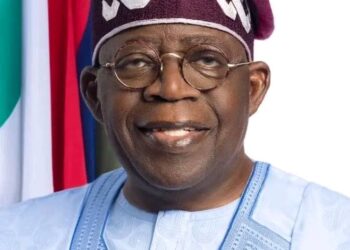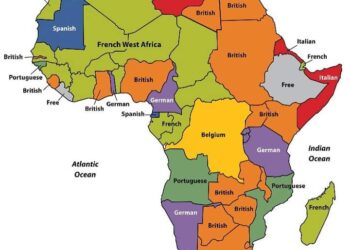A major milestone in the drive towards the realisation of Nigeria’s four-year strategic Plan, was recorded recently, when the federal government flagged off the construction of vocational schools in the south-south. SIMEONE NWAKUDU examines the import of this educational breakthrough
On Thursday, January 30 and Friday, January 31, 2014, the federal government set in motion another historical feat in the nation’s education sector. The administration brought to life a critical segment of the Four Year Strategic Plan for the Education Sector, which is using Technical, and Vocational Education and Training, TVET, to empower less
privileged Nigerians.
Like the now celebrated successful implementation of the Almajiri Education Programme, the implementation of the Universal Basic Education, UBE, and Special Vocational Schools for the South-East and the South geo-zones have been initiated and carefully planned in the last two years to equip out-of-school boys with relevant literacy and numeracy and also train them with key vocational skills to be relevant.
This was an initiative of the Supervising Minister of Education, Barr. Ezenwo Nyesom Wike, approved by President Goodluck Jonathan in line with the Educational Transformation Agenda of the administration. The Minister upon assumption of office as Minister of State for Education superintending the nation’s basic education sector on July 14,2014 pledged to ensure that it would not be business as usual for this long neglected sector.
.In all, 125 Almajiri Schools delivered, 72 Electronic Libraries in 72 out of the 104 Federal Unity Colleges delivered, and 25 Federal Unity Colleges were rehabilitated in the phased rehabilitation programme. Over 1million basic education teachers and administrators were equally trained with over 60million free textbooks given to less privileged Nigerian children.
Since 2011, the nation’s education sector has developed quite superlatively, despite the myriad of challenges that the administration inherited. For instance, the 10.5million out-of-school challenge being frontally resolved by the administration was inherited. As of today, the Almajiri schools, the girl-child schools and now the Special Vocational Schools have taken care of a greater percentage. The efforts of the administration will be better appreciated, if
Nigerians understand that basic education is constitutionally within the purview of state and local councils, with the Federal Government only intervening.
The Special Vocational Education Schools for the South-East and South-South are designed fundamentally to cater for the boy-trader in the two regions. These are boys who in most cases have been to primary schools, but fail to attend Junior Secondary school due to family financial challenge and thereafter resort to street trading and other chores.
The Schools have been designed to be boarding schools with all students accommodated on campus to make learning very effective. The Special Vocational Schools will have an administrative block, a generator house, security post, library and in-house accommodation for the principal and the vice principal. There will be training workshops and classrooms for Carpentry and Mechanical Department, Fashion, Textile and Catering Department, Building and
Welding Fabrication Department and Automobile Mechanic and Electrical Department. The schools will have modern hostels for students, quarters for the house masters, cafeteria and playgrounds.
During the ground breaking ceremonies for the South-East and South-South for this project have been done in Uga, Aguata LGA of Anambra State and Ukana, Essien Udim LGA of Akwa Ibom State for the two geo-zones, the Supervising Minister of Education, Barr. Wike declared that the schools will be delivered in six months as the resources for their completion have been set aside by the present administration.
Wike said that the construction of the Special Vocational Schools is part of the process to tackle the menace of out-of-school challenge in the country. The Minister stated that the project is targeted at using education to create employment and empower less privileged youths with relevant trade skills to be self-reliant.
Akwa Ibom State Governor, Godswill Akpabio declared that President Goodluck Jonathan has invested more in the creation of access to quality education for less privileged Nigerians more than any other administration in the past.
The Governor stated that the flag off of the construction of Special Universal Basic Education, UBE, Vocational Schools in the South-South and South-East by the Jonathan administration indicate that the nation is on the part of greatness by equipping her youths with relevant skills.
Even as the administration has set aside funds to execute these laudable projects, only five out of the eleven states have allocated land to the Federal Government for the construction. The Executive Secretary of the Universal Basic Education Commission, UBEC, Dr Dikko Suleiman announced this during the ground-breaking ceremonies.
The beauty of the sustained milestones in the education sector is that ‘ordinary’ people are teaching in the new schools, while the children of the less privileged are learning to become useful Nigerians in these schools. The 125 Almajiri Schools, the 16 Special Girl-Model Schools and now the Special Vocational Schools are direct gifts to voiceless Nigerians. Need we mention the 12 New Federal Universities with nine of them in the North changing the economies of their respective communities and empowering a new generation of academics.
One thing is sure; the capacity of the present administration to set new records in the nation’s education sector will not end with the Special Vocational schools for the South-East and South-South. New programmes are contained in the Four-Year Strategic Plan of the Education sector and their implementation will be kick-started this year. Therefore, Nigerians, especially development seeking ones, should continue to expect the best from an administration that has continued to work for the people.
Nwakaudu is the Special Assistant on Media to the supervising minister of Education.



